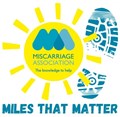Story
Around 1 in 4 pregnancies end in miscarriage yet there is still so much secrecy and shame associated with it. It’s just not spoken about enough, particularly in South Asian communities. I want to do things differently and that’s why I’m sharing my story here in the hope that it will help others.
In the past six months I have had two miscarriages. One very early on, and the second this month at nine and a half weeks. The latter was a missed miscarriage, which means I had no symptoms to suggest anything was wrong. It was only during an early scan that the sonographer paused for what felt like a lifetime and softly said, “We would expect to see a heartbeat at this point.”
It has been an incredibly difficult period, but I know I am not alone. When I have spoken to family, close friends or colleagues, I have been met with so many stories either of their own experiences of miscarriage, or of someone close to them. And then there are all of the women I met on multiple trips to hospital, both in the Early Pregnancy Unit and Surgical Assessment Unit. Strangers in one sense, but all of us bound by an inexplicably painful loss.
I have never understood why women are told to keep their pregnancy secret until twelve weeks, when the first trimester is both the most exciting and anxiety-inducing time. It’s often when symptoms are at their worst, when questions are plenty and when it feels like you’re living a double life – making excuses not to drink, to head home early and to explain away brain fog. It’s a time when you need people around who can properly support you.
We still have so much work to do as a society to navigate miscarriage – as women, as partners, as friends, as family, as employers, as healthcare providers. For all of the good work the NHS does with depleting resources, there needs to be more care and compassion in how women are treated. One of the worst parts of my experience was the nurse describing the procedure to complete the miscarriage as “the evacuation of products of conception”. The language needs to change.
Shame exists in the dark, but as Brené Brown beautifully writes, “[shame] cannot exist being spoken”. I hope in telling my story that other women will find some comfort knowing they are not alone in their grief, sadness, pain and frustration.
The Miscarriage Association has been a brilliant source of clarity and practical information, and an antidote to the endless late-night scrolling of online forums in search for relatable stories and ultimately, hope.
In June, I will be taking part in The Miscarriage Association's Miles That Matter challenge which involves walking 50 miles (80 kms) which I aim to complete over two weekends.
Anything you can donate would be hugely appreciated – no amount is too small and every pound will enable The Miscarriage Association to continue to help the hundreds of thousands of women that go through miscarriage every year.
Thank you.
Jhanvi x
